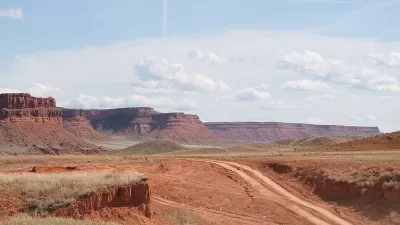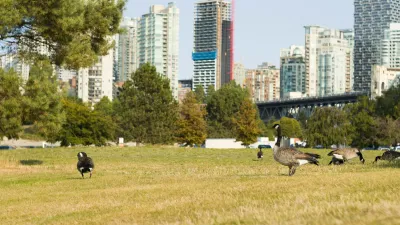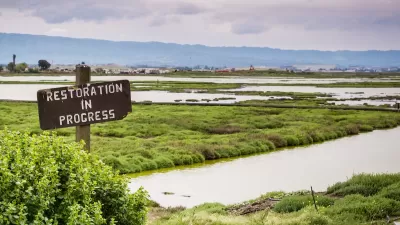California State Legislature committee approved AB 3030 in May, adopting a plan to save 30% of land and sea from development by the year 2030. The Convention on Biological Diversity is likely to follow in adopting the 30 by 30 framework.

Last year, an international group of scientists published an article in Science Advances proposing a "Global Deal for Nature," a plan to save biodiversity by protecting nearly 30% of the world's waters and lands by 2030. "They wrote that setting aside nearly one-third of the planet from human development could avert 'points of no return' for many species and ecosystems," reports Sammy Roth. The Convention on Biological Diversity is expected to adopt the preventative plan.
Roth reflects: "You may have heard the statistic that the U.S. loses a football field’s worth of nature every 30 seconds. The data point can start to sound meaningless if you hear it too often, but stop and think about it. Every 30 seconds? That’s astounding." California's recently Assembly Bill 3030 cites the statistic and sets state-wide legislation adopting the framework.
Global Deal for Nature authors consider the "30 by 30" goal as a starting point, hoping to extend the effort to 50% by 2050.
FULL STORY: Boiling Point: The ’30 by 30' plan to save the natural world

Maui's Vacation Rental Debate Turns Ugly
Verbal attacks, misinformation campaigns and fistfights plague a high-stakes debate to convert thousands of vacation rentals into long-term housing.

Planetizen Federal Action Tracker
A weekly monitor of how Trump’s orders and actions are impacting planners and planning in America.

San Francisco Suspends Traffic Calming Amidst Record Deaths
Citing “a challenging fiscal landscape,” the city will cease the program on the heels of 42 traffic deaths, including 24 pedestrians.

Defunct Pittsburgh Power Plant to Become Residential Tower
A decommissioned steam heat plant will be redeveloped into almost 100 affordable housing units.

Trump Prompts Restructuring of Transportation Research Board in “Unprecedented Overreach”
The TRB has eliminated more than half of its committees including those focused on climate, equity, and cities.

Amtrak Rolls Out New Orleans to Alabama “Mardi Gras” Train
The new service will operate morning and evening departures between Mobile and New Orleans.
Urban Design for Planners 1: Software Tools
This six-course series explores essential urban design concepts using open source software and equips planners with the tools they need to participate fully in the urban design process.
Planning for Universal Design
Learn the tools for implementing Universal Design in planning regulations.
Heyer Gruel & Associates PA
JM Goldson LLC
Custer County Colorado
City of Camden Redevelopment Agency
City of Astoria
Transportation Research & Education Center (TREC) at Portland State University
Jefferson Parish Government
Camden Redevelopment Agency
City of Claremont





























